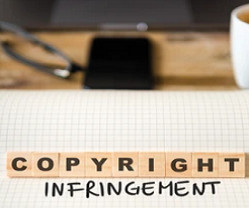Generative AI and creativity: A quick analysis of US and Canadian copyright registrations for artistic works
Kluwer Copyright Blog
APRIL 17, 2024
Against that background, this blog post provides some tentative musings on the impact of text-to-image generators on human artistic creativity by analysing recent US and Canadian copyright registrations for artistic works. For simplicity, I will label this ‘commercial significant artistic creativity’.












Let's personalize your content